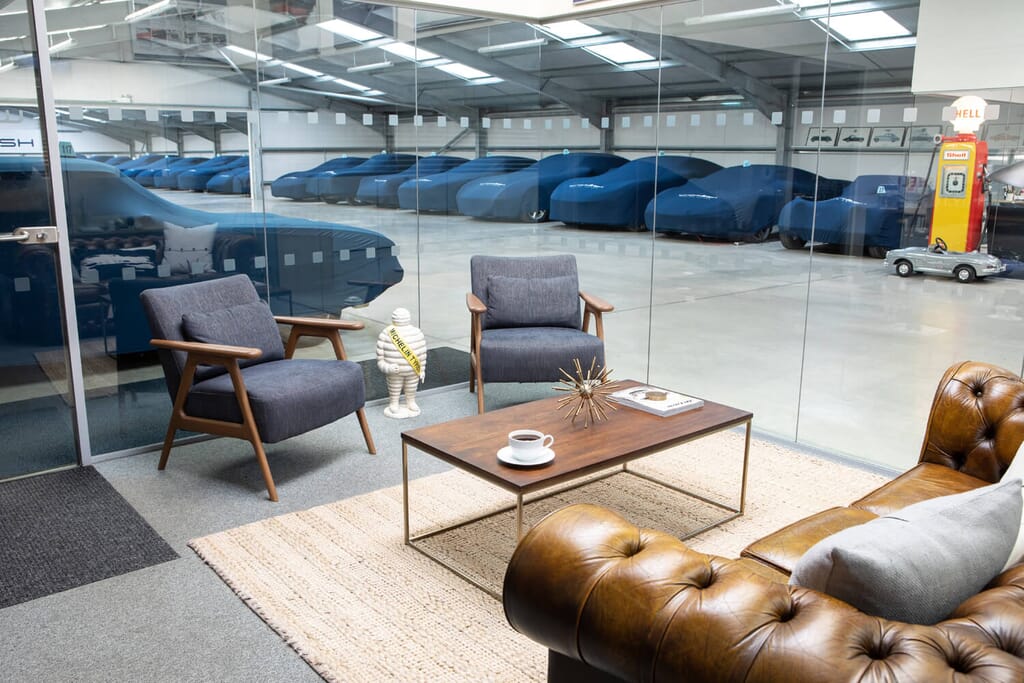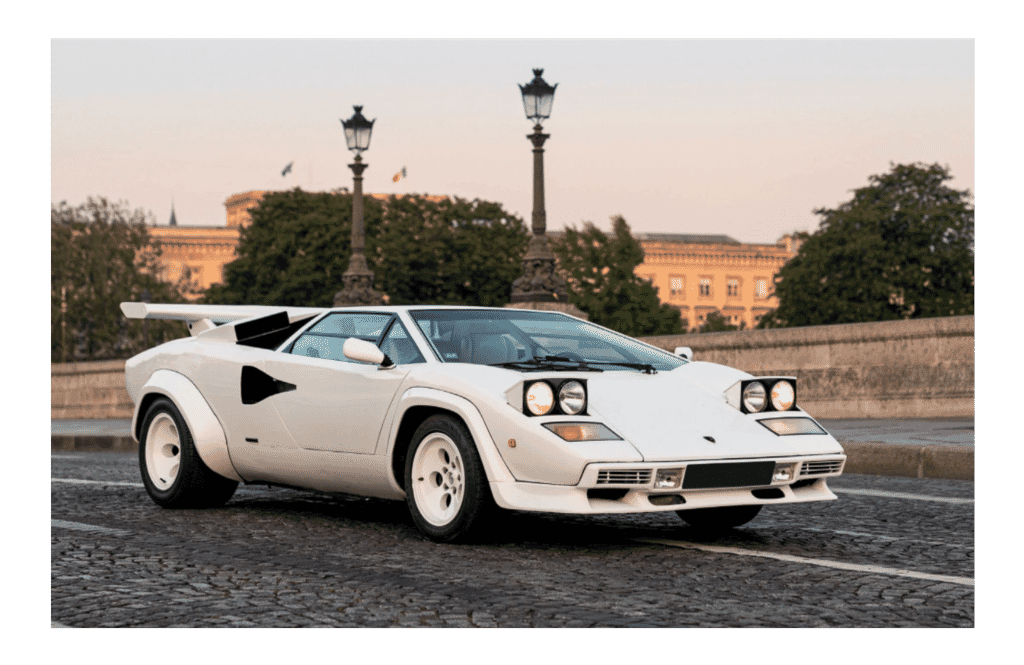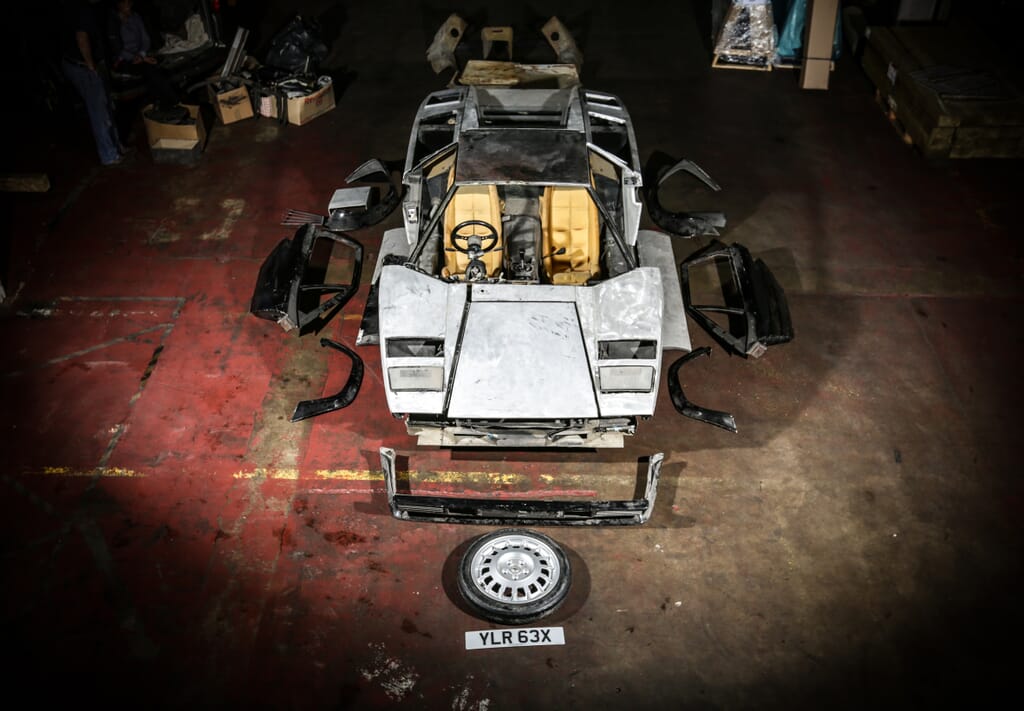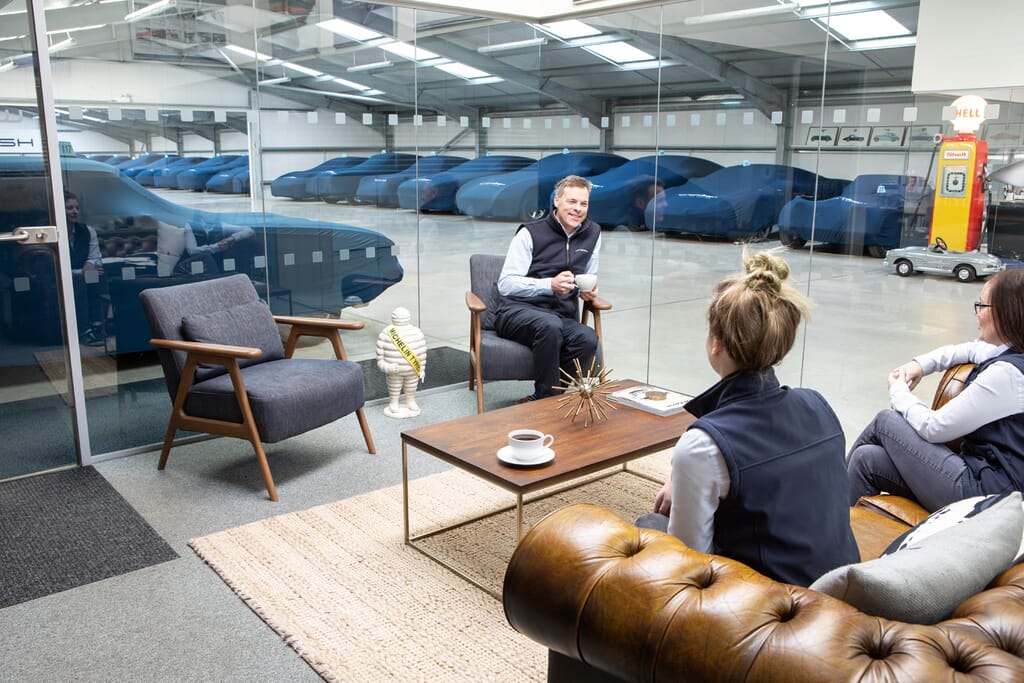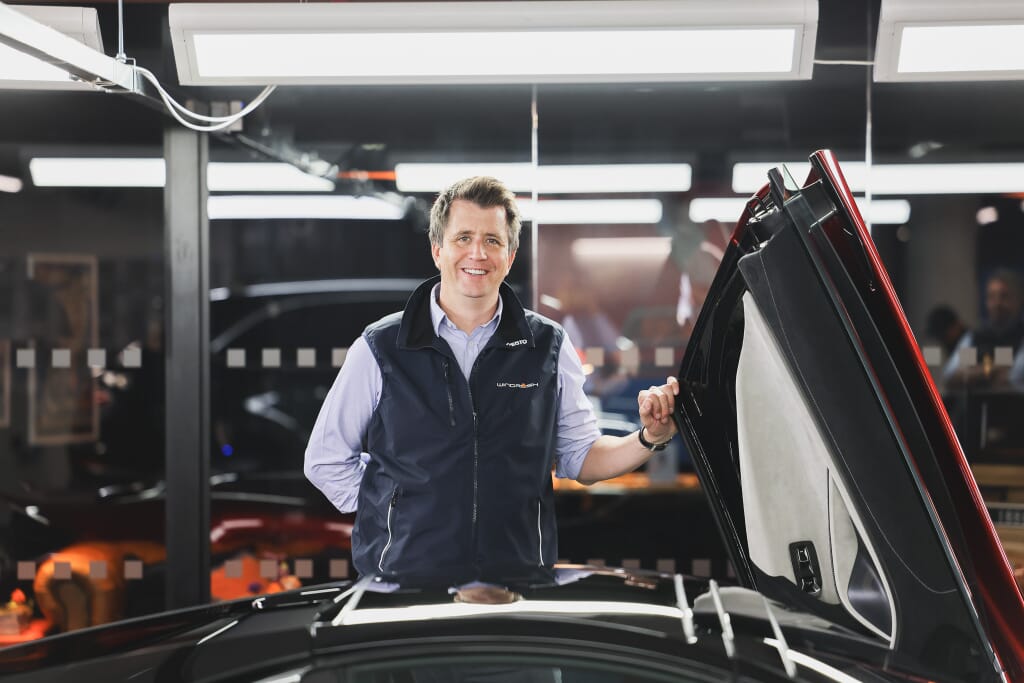
If you’re planning to buy classic cars in 2025, you’ll find more opportunities than ever when it comes to finding your perfect vehicle- from live auctions to curated online platforms. The rapid expansion of online auction platforms, such as Bring a Trailer and Collecting Cars, has thrown a cat amongst the pigeons in recent years and prompted more traditional outlets to up their game. While the quality of service offered by dealers and auction houses has in turn pushed up the quality of online offerings.
Whether you’re seeking your first vintage automobile or adding to an established collection, understanding where to find the best classic cars for sale—and how to navigate each buying channel safely—is crucial for making smart purchasing decisions.
We spoke to Alastair Main, General Manager at Windrush Car Storage, for his advice and the pros and cons of buying a classic car from dealerships, UK classic car auctions, big international auction houses and online services, and through peer-to-peer and concessionaires – as well as having the car inspected before you hand over the money.
Specialist Classic Car Dealerships
This will be the first port of call for a lot of enthusiasts and collectors. The top dealerships offer a broad selection of some of the best metal around, aided by a network of buyers and sellers built up often over many decades, and with the sales and market experience to back that up.
There’s a lot that appeals about the traditional specialist dealership experience too, from being able to inspect the cars up close, to the dialogue and relationship you can build with the business – which works both ways, since it means trust and familiarity for buyers, and repeat custom for the dealership. With new high-end models you’ll also have the benefit of a warranty, and even with older cars, more back-up than you’re likely to get from an auction in the event of any issues, post-purchase.
On the other hand, as Alastair puts it, “this is the motor trade, so of course there are sadly exceptions”. If you’re reading this you may well have experience of some dealers and have built your own preferences as a result. The other potential downside, of course, is cost. Understandably, “they build in a significant margin” says Alastair, though as a buyer you might decide the swanky premises you get to visit, and the staff you speak to, are worth paying a little extra for the right car.
Traditional Classic Car Auction houses
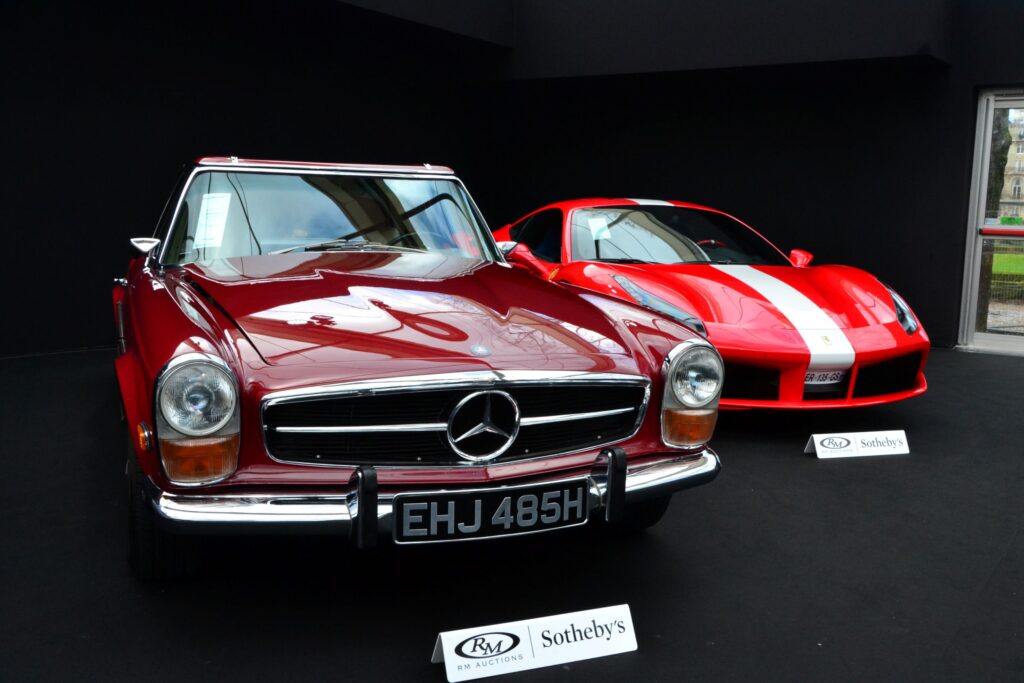
The best auction houses for classic cars, such as RM Sotheby’s, Bonhams, Iconic, Mecum, and Aguttes, are still among the highest-profile and most trusted platforms from whom collectors can source and buy cars. Most have risen to the challenge of new online auction sites by setting up their own equivalents (or indeed acquiring existing ones) but it’s still possible to do things the old-fashioned way too, either bidding by phone using a broker, or turning up in person and taking part in the action.
Traditional auctions are still where the headlines are made too, such as the 135 million Euro ‘Ulenhaut’ 300 SLR that sold through RM Sotheby’s in 2022. Big sales happen privately too of course, but nothing generates excitement like a room full of people watching the numbers go up.
This excitement does of course risk elevating the price of a car further than you might otherwise have paid elsewhere, though equally if the mood in the room isn’t right, even some spectacular automobiles have sold for well below estimate before, so a steal of a deal remains possible. There are fees to consider, and ultimately there’s a degree of risk to buying at auction (especially if you’re not there in person to inspect the car), though this will be mitigated somewhat by the reputation of the top auction houses and the quality of the vehicles they offer.
Online Classic Car Auctions and Marketplaces
From Bring a Trailer in the United States to Collecting Cars in the UK, online auctions have exploded in popularity over the last decade. They went into overdrive during the Covid lockdowns, when they became the perfect, socially-distanced means by which to buy and sell classic cars – and that led to even more emerging from the woodwork.
“It’s the easy, straightforward way to buy cars” explains Alastair. “You’ve got a list of cars, a seven-day bidding process, and everything is transparent.” The top online auction sites tend to provide a hundred photos or more so gauging a car’s condition is easy, and like a traditional auction vehicles do pass something of a vetting process before they go online.
It’s not perfect though – Alastair notes that it’s still possible “to buy a lemon”, though you can avoid this to some extent by quizzing the seller, as there’s usually some means of contacting them while the auction is ongoing – Bring a Trailer has an active comments section below each auction, for instance.
There’s the usual risk in buying a car sight unseen too, while fees vary – some platforms keep fees low or nonexistent for the seller to attract as many cars to their site as possible, but pass the cost on to the buyers, so a car bought at online auction will almost certainly have some hidden fees.
Private Sales and Classic Car Brokers
Not all cars are bought publicly, with peer-to-peer sales, either in private or through brokers and concessionaires, a common method of trading high-end vehicles. Many enthusiasts choose to buy classic cars through private sales, but it’s essential to research the vehicle’s history and value beforehand. Looking for a particular car? There’s a network of experts out there who might be able to direct you to one that’s about to appear on the market from one of their clients.
While Alastair highlights that once again there’s an element of risk, as there is in any private sale, there are several advantages too. “Within our network, we mitigate the risk in the sense we know the cars because they’ve been with us a while. We can say to the buyer, ‘we’ve known this car for five years, it’s been serviced on these dates’, and so-on.”
Peer-to-peer sales won’t have dealer margins or fees built-in either, and there’s a good chance you can inspect the car personally before you discuss payment, which is an advantage over traditional and especially online auctions – and as a further benefit, the slower pace of negotiation might give you enough time to take out a pre-purchase inspection.
Classic Car Pre-Purchase Inspections
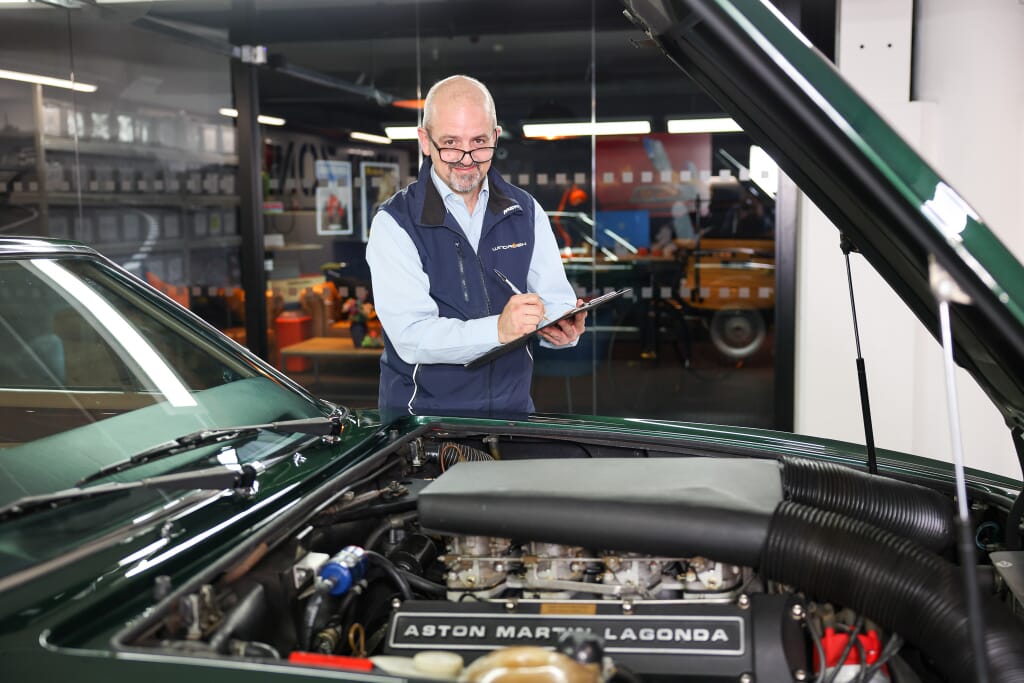
For ultimate peace of mind before buying any car, a pre-purchase inspection at the hands of experts will give you the best insight into what you’re about to buy – or even advise you on particular models, if you haven’t quite settled on the next car to add to your collection.
Several companies, including Windrush, offer these pre-purchase inspections. “We offer a service where myself or one of the guys on our team will go and take a look at a vehicle, take it for a test drive, and provide a series of photographs and an inspection report” explains Alastair. “The cost depends on the complexity of the vehicle and how far we have to travel, but it gives our clients peace of mind if they haven’t had an opportunity to see the car themselves.”
There’s also the option of an even more in-depth inspection using various third-party providers from Windrush’s approved suppliers list, which Alastair describes as “more of a nut and bolt inspection – they’ll get under the car, they’ll remove the wheels.” For particularly special or high-end vehicles, there’s also the option to send the car to a marque specialist, whose experience of particular cars may be unmatched, and the ultimate seal of approval on the best example of the breed.
Key Takeaways for Successful Classic Car Buying
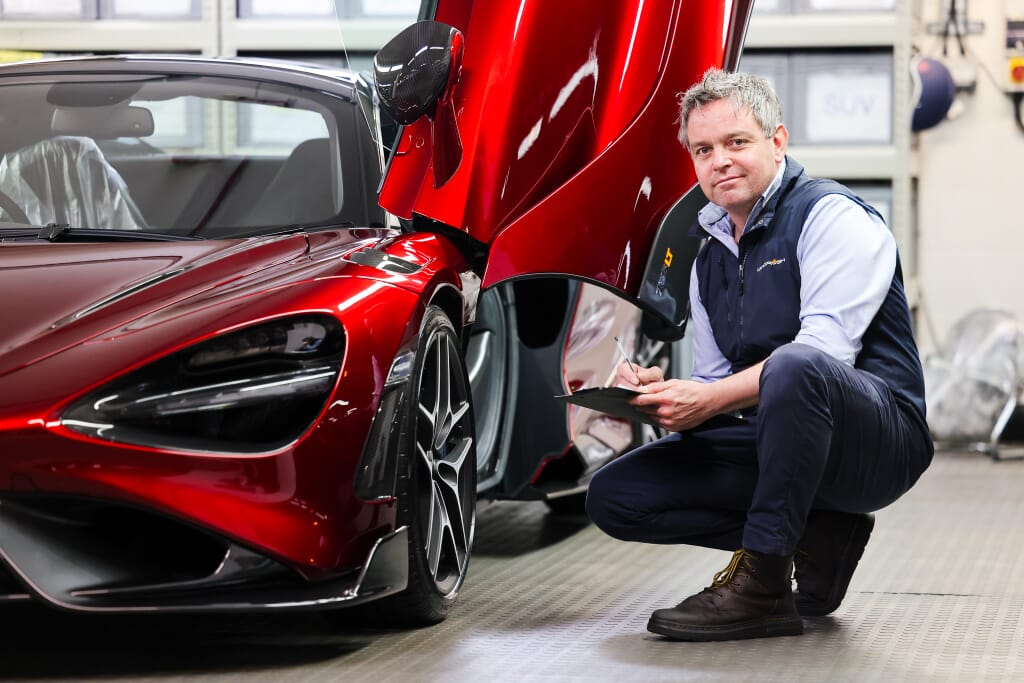
The classic car market has never offered more ways to buy classic cars, from the personal service and warranties of specialist dealers to the excitement and potential bargains of auction houses. Whether you buy classic cars as a hobby, investment, or for their timeless appeal, choosing the right platform can make all the difference. Online platforms like Bring a Trailer and Collecting Cars have democratised access to exceptional vehicles, while private sales through brokers can offer the best value for money.
- Choose your method based on experience level: New collectors benefit from established dealers’ support and warranties, while experienced buyers might prefer the competitive pricing of auctions or private sales.
- Think about an inspection: Whether buying from a top-tier auction house or a private seller, a professional pre-purchase inspection can give you ultimate peace of mind when buying a classic car.
- Factor in all costs: Remember that auction fees, transportation, immediate repairs, and insurance can add 15-20% to your purchase price.
- Build relationships: The classic car community thrives on connections. Whether with dealers, auctioneers, or fellow collectors, relationships often lead to the best opportunities.
